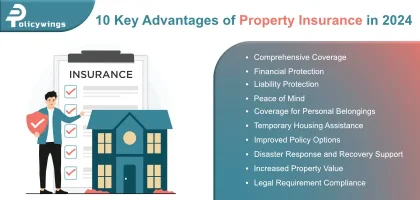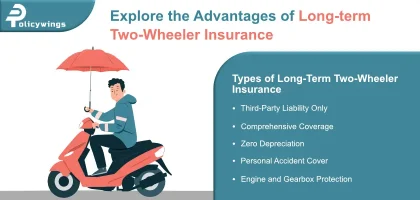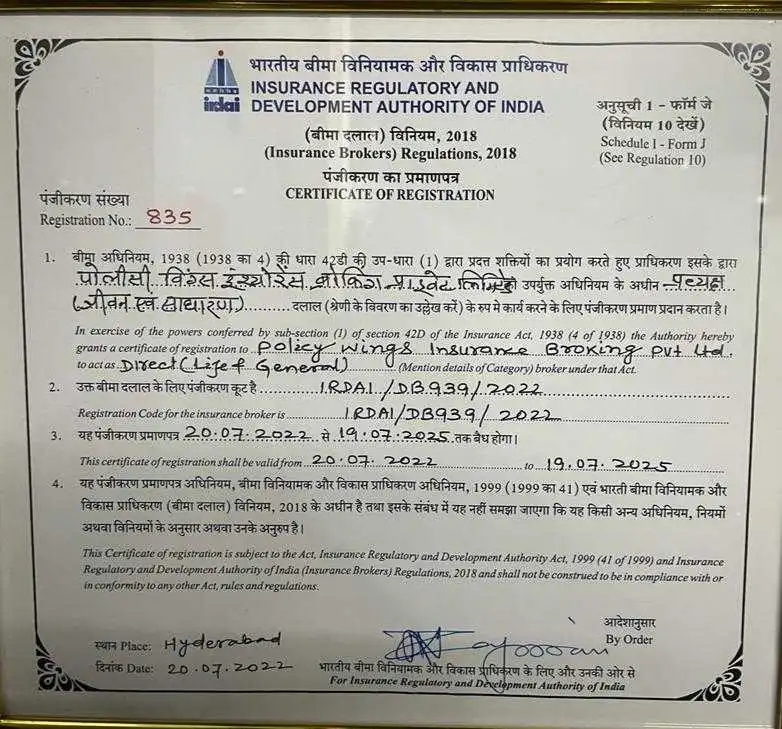Health Insurance for Parents
Health Insurance for Parents
Despite optimal protection and care, people still tend to fall sick, especially during their old age. Getting the right medical attention before it’s too late is best. This ensures reduced suffering by reducing the effects of the ailment(s). However, it is implied that it is a matter of efficient financial planning, investment, and management.
Here comes the question of health insurance for parents. Such health policies differ from regular health plans in certain aspects. A deeper analysis will reveal the true picture better.
Why do you need health insurance for your parents?
Maintaining befitting health insurance for your ageing parents ensures significant parental care. Nowadays, most children travel elsewhere for education and jobs. This makes it all the more difficult to take proper physical care of their parents.
Under such circumstances, maintaining a proper health plan for them is a protective financial shield during medical contingencies. People become more vulnerable to several physical ailments with age, requiring regular monitoring and efficient medical care. Such health plans are specially crafted keeping age in mind. Such plans offer cashless treatment facilities at network hospitals, hospital treatment cost coverage, ambulance charges, pre-and post-hospitalisation, consultation charges, investigation costs, coverage for certain particular ailments, etc.
Therefore, possessing separate health insurance for parents is crucial to ensure proper medical and financial protection against unprecedented or planned medical treatment expenses.
Should you include your senior citizen parents in your plan?
Maintaining a health insurance plan isn’t a luxury anymore, it is a basic necessity. This is more so because we are witnessing a steep rise in medical treatment costs with every passing day. Keeping the scenario in mind, it is wise to invest in a family floater health insurance plan. This is an umbrella plan that covers multiple family members at one go.
Family health insurance is a convenient option, as you don’t need to maintain individual plans and keep track of paying separate premiums for each plan. However, including your senior citizen parents within the scope of a family floater plan may not be practically a viable solution during medical emergencies.
- Paying a comparatively higher premium:
In the case of a family health plan, the premium amount determination considers the age of the oldest family member. Therefore, it implies that including your aged parents will lead to significantly higher premium payments. Moreover, it is quite plausible that your parents may have pre-existing ailments. This further enhances the risk of higher premiums. So, it is best to keep your senior citizen parents out of the scope of a family health plan. - Insufficient coverage for other family members:
Since your parents are ageing, they might require frequent medical attention and even hospitalisation. If you include your parents in a family floater plan, then you might face insufficient coverage for other family members included in the plan during medical needs, which especially leads to hospitalisation. Under such circumstances, you need to incur several out-of-pocket expenses despite maintaining a health plan.
Therefore, keeping these factors in mind, it is best to opt for separate health insurance for your parents to ensure sufficient coverage.
Features and benefits of opting for separate health insurance for parents
Medical health plans that are specially crafted for senior citizen parents possess certain unique distinguishing features. Some of those extraordinary characteristics include:
- Sum insured capping:
Any health plan for parents comes with a specific sum insured amount because the insurer is aware of the high-risk factor. Most plans offer a coverage limit of up to ₹ 10 lakhs, while some extend up to ₹ 25 lakhs and sometimes even more.Pro tip: However, you need to check the coverage limits and then choose a plan that best suits your needs.
- Co-payment ratio:
Every health policy designed for senior citizens maintains a co-payment factor. This means you have to share a part of the total claim amount. The co-payment ratio denotes the percentage of the claim the policyholder needs to pay. This ratio varies from one plan to another.Pro tip: Ideally, opt for a plan with nil or a low co-payment ratio to minimise your out-of-pocket expenses.
- Waiting period for pre-existing ailments:
Parents’ health policies maintain a specific waiting period for certain pre-existing ailments like diabetes, hypertension, thyroid, etc. You cannot raise any claim for medical conditions arising due to pre-existing diseases.
Pro tip: However, for a health insurance plan for your parents, try and keep this waiting period comparatively low for enhanced coverage and convenience. - Discounts:
On making a wise choice in buying your parent’s health plan, you can avail of several discounts for opting for long-term coverage, including spouse under the same coverage, or for online purchases.
Pro tip: Opting for deductibles and higher co-pay could reduce your premiums significantly, but it might increase your out-of-pocket expenses. - Pre-entrance health check-ups:
Certain insurance providers require a pre-entrance medical check-up before issuing a plan for older individuals. You have to bear the cost of these investigations initially. However, once the plan gets issued, either 50% or 100% of the cost is usually reimbursed by the insurer. - Sub-limits:
Parent health plans maintain certain restrictions while offering hospital coverage and other associated expenses. These restrictions are technically termed sub-limits. Some of the most popular sub-limits include room rent capping, restriction on cataract surgery, knee-replacement surgery, or any other specifically listed medical procedure, coverage limit on AYUSH and domiciliary treatments, etc.
Pro tip: Most new-age health insurance plans do not have sub-limits or have a lesser number of sub-limits. Ideally, opt for a plan with the least sub-limits to minimise your out-of-pocket expenses are health insurance plan for parents could have a higher amount of claim. - Long-term coverage span:
Any standard health plan for parents ensures long-term coverage. You can even purchase a plan with term tenure ranging from 2-3 years uninterruptedly.
Pro tip: Tax Benefits for long-term health plans can be availed on a pro-rata basis for all the years and hence you do not lose out on the benefit. - Instalment premium feature:
As per the current IRDAI norms, you can pay the premium for your parent’s health plan in several instalments. It can be either monthly, quarterly, or half-yearly spans, depending on the convenience and requirements. - Tax benefits:
As per section 80D of the IT Act, health insurance premiums paid for senior citizen parents qualify for tax benefits. If you pay the premium for additional health coverage for your parents, you can claim an additional deduction of up to ₹25000.
However, if either of your parents is over 60 years old, then this limit increases up to ₹50000. Therefore, if you purchase one health plan for yourself, one for the family, and a separate one for your senior citizen parents, you can claim a maximum tax benefit of up to ₹75000.
What is covered in health insurance for parents?
Some of the most common inclusions of a parent’s health insurance policy include:
- In-patient hospitalisation:
If the insured individual remains hospitalised for a minimum of 24 hours, the health plan covers the physician’s consultation fees, nursing charges, medicine costs, blood costs, room rent, etc. as per requirement. - Pre-hospitalisation costs:
Most health plans for parents offer pre-hospitalisation expenses i.e., costs incurred before the insured is hospitalised. The plans specify the tenure. - Post-hospitalisation costs:
Post-hospitalisation costs are those incurred after getting discharged from the hospital. Such costs may include medical consultation charges, investigations, etc. The insurance plan covers such expenses for a certain period. - Ambulance charges:
If the insured person needs an ambulance facility, the cost is covered by the insurer up to a certain extent. - Daycare expenses:
Any treatment that requires hospitalisation for less than 24 hours is termed daycare treatment. It happens during cataract surgery and other similar procedures. Health plans for parents cover such medical costs. - Domiciliary treatment charges:
If any aged individual is treated at home, the treatment costs are covered under the scope of the chosen plan. - Organ donor costs:
Organ donation or transplanting treatment costs are also covered under most senior citizen health policies. - No claim bonus:
As a policyholder, you can enjoy special bonus benefits if you raise no claim for a year. This is credited as an enhancement in the amount of the sum insured or as a special discount during plan renewal. - AYUSH treatment costs:
Alternative treatment costs are also covered to a certain extent by health plans for parents. Such alternative treatments include Ayurveda, yoga, Siddha, Unani, and homoeopathy. - Free medical health check-ups:
After a specific tenure, most health insurance for parents allows free medical check-ups. This ensures regular monitoring and better maintenance of health. It depends on the terms of the chosen plan if it allows yearly health check-ups or after 2/3/4 consecutive claim-free years. - Lifelong renewability:
Once you purchase a health plan for your parents, you can renew it effortlessly throughout their life span.
What is not covered in health insurance for parents?
Although any health plan for parents includes several types of covers, however, there are certain restrictions as well. Some of the most common health insurance exclusions include
- Cover for pre-existing ailments within the pre-determined waiting period of 12 to 48 months
- Certain listed ailments aren’t covered within the initial 2-4 years of the plan issue
- Any health issues occurring between the initial 30-60 days of purchasing the plan
- Any treatment procedure that is medically not approved or necessary
- Any sort of experimental, unproven, or scientific treatment processes remain excluded
- Dental treatments, cosmetic treatments, circumcision, or weight management treatment processes aren’t covered
- OPD costs remain generally excluded
- Any claim arising due to riots, war-like situations, nuclear perils, etc. isn’t covered
- No debilitating health issue or congenital defects is entertained
- Any suicidal or self-inflicted injury
- Cost of any spectacles or lenses
- Rehabilitation cost of any alcohol or drug abuse
- The cost incurred for treating STDs like AIDS or HIV
While purchasing a health policy for your parents, you must be careful enough to know all the exclusions in detail for a clearer understanding of its coverage span.
How to choose the optimal coverage for health insurance for parents?
While purchasing a health plan for your parents, you must be careful enough to ensure adequate coverage. You have to research thoroughly and compare several plans to understand which one suits your parents the best, considering their current health status.
You have to ensure that the plan you choose offers coverage against a maximum number of ailments, including critical illness coverage. If the plan excludes critical illness coverage, you can opt for a rider, to enhance the coverage scope.
The amount of the sum insured must be high, thereby reducing out-of-pocket expenses. Since older individuals are comparatively more prone to health risks, lower sum insured might easily get exhausted. So, it is best to keep the margin high, considering the health status of your parents.
While buying the plan, ensure that the chosen plan offers comprehensive coverage and allows the policyholder to choose befitting riders as per requirement. Comprehensive coverage acts as a protective shield for your hard-earned savings. It pays for AYUSH costs, annual health check-ups, cataract treatment expenses, domiciliary treatment costs, etc.
Your chosen health plan for parents must be flexible enough to enhance the coverage margin as per requirement. If you feel that the sum insured is low, you must be able to enhance the coverage span during renewability without any hassle.
Points to keep in mind when buying health insurance for parents
Ensuring the health of your parents is not any matter of joke and must be taken very seriously. You need to be wise in this respect, considering several crucial factors during the process. Some of the most significant factors that you need to keep in mind while purchasing a health plan for parents include the following:
- Sub-limit:
The insurance providers tend to impose certain restricted sub-limits for specific medical procedures like knee replacement surgeries, cataract surgeries, etc. for enhanced claim control. This means that such treatment procedures will be covered only up to a specified span, despite it being within the specified sum insured limit. You must review your chosen plan well before making the final selection to understand the limit of your out-of-pocket expenses. - OPD care:
Not all insurance plans for parents offer OPD care coverage. Under such circumstances, it is better to opt for an OPD cover rider to ensure enhanced coverage. You have to make sure that your chosen plan includes it or not and then proceed accordingly depending on your requirements. - Health check-up:
Most health policies for parents allow free health check-ups after a certain period of purchasing the plan. It can be yearly or at times it is offered after a specific number of claim-free years (s), depending on the terms and conditions of the health plan concerned. - E-consultations:
E-consultations have become quite a popular affair since the outbreak of Covid-19. Make sure that the health plan that you have chosen for your parents offers coverage for e-consultations. - Co-payment:
Co-payment is that pre-determined percentage of the share of the claim that you have to pay out of your pocket. You have to clear your share of dues during billing before your insurance provider pays off the remaining amount. The standard limit of co-payment for a senior citizen health insurance policy ranges between 10% and 30%. It is best to opt for a plan that offers a low or zero co-payment clause. - PED coverage:
PED cover stands for pre-existing disease cover, implying ailments that your parents have been suffering before purchasing the plan. Most health plans impose a specific waiting period for certain PEDs, during which you cannot make any claim for treating those listed ailments. Make sure that the plan you choose offers a comparatively lower waiting period.
How to buy health insurance for parents?
You must be very careful while buying a befitting health plan for your parents to ensure optimum protection and coverage. Since the market is loaded with a variety of plans, it becomes all the more challenging to choose the right one. However, you need in-depth research and thorough homework for the best understanding of the scenario. You need to compare different plans to know what will suit your parents the best. You must consider certain crucial parameters before making your final choice:
- Sum insured limit:
The limit of the sum insured for most of the health insurance plans for parents remains fixed. Therefore, it is best to select a plan that offers a high sum insured limit to ensure optimal coverage. - Co-payment ratio:
Co-payment is the claim that your parents have to share with the insurance provider during any claim settlement. While choosing the plan, you must opt for either a zero or minimum co-payment ratio clause to reduce your financial burden. - Discounts available:
Opt for the plans offering optimum discounts. If your parents suffer from PED(s), then those will be covered after the pre-determined waiting period. Compare several plans to understand which one offers the minimum waiting span. You must also compare the sub-limit coverage limits. Always try to go for the one that offers the highest sub-limit margin. The coverage features must also be carefully considered. Depending on your needs, you can even enhance the coverage scope by adding befitting riders.
Tax benefits
Investing in your parent’s health insurance plan will not only act as a protective shield for your parents but will help in the efficient management of your financial portfolio through tax benefits.
Tax Benefit that you can avail | |
Tax Benefit for parents < 60 years | ₹25000 |
Tax Benefit for either parents >= 60 years | ₹50000 |
Deduction benefits on annual health check-ups
You can enjoy tax exemption benefits offered on OPD consultation charges and other diagnostic investigations. You can even avail of those benefits despite cash payment. As per the current IT norms, the limit in this category is capped at ₹ 5000.
Deduction on premium payment for health insurance for parents
You can claim an optimum deduction of ₹ 50000 for the premium payment of health insurance for parents. For certain specific ailments, this limit is raised to ₹ 100000. Moreover, if you pay a lumpsum premium for several years at one go, you are entitled to a special tax benefit, u/s 80D of the IT Act. The amount of tax-deductible depends exclusively on the amount paid for the plan term. This limit is capped at either ₹ 25000 or ₹ 50000 depending on the age of your parents.
How to file a claim?
You need to follow a certain protocol for claim settlement for your parent’s health plan:
- Cashless:
In the case of cashless claim settlement, first, duly fill in and sign the pre-authorisation form at any of the listed network hospitals.
The hospital authorities will mutually communicate with the insurance company concerned and keep track of the updated status.
Once the pre-authorisation form is approved, you can proceed with the hospitalisation procedure.
Once the hospitalisation period is over, the insurance provider will directly settle the claims with the hospital authorities before the concerned patient gets discharged.
You must note that the pre-authorisation form must be submitted at least 3 to 4 days before any planned hospitalisation or within 24 hours of emergency hospitalisation. - Reimbursement:
For reimbursement claim settlement, you have to clear all the dues and pay the necessary charges out of your pocket and keep all the original bills and invoices safe.
After discharge, send all the relevant bills, documents, challans, and invoices to the concerned insurance provider.
The insurance company will verify all these documents before the claim settlement.
Once everything is checked correctly, the insurer will reimburse the approved claim amount directly to the registered bank account of the beneficiary. - Critical illness
In the case of a critical illness claim payment, you generally receive a lump sum amount to cover the treatment costs or to clear off the dues. This cover does not pay if the concerned insured individual passes away. You have to duly inform the insurance company once any critical ailment is diagnosed to proceed further.
Pre-and post-hospitalisation
You must follow these steps for pre-and post-hospitalisation:
- Make sure that your claim for pre- and post-hospitalisation is for the same health issue.
- Fill in the claim form, attaching all the relevant hospital bills along with other necessary documents like investigation reports, prescriptions, etc., and share the same with both the TPA and the insurance provider
- Ensure to submit the claim within 45-90 days of hospitalisation. However, you must clarify with your insurance provider to know the exact details.
- Once you submit all the documents, the authorities will verify them. If everything seems correct, the claim will be settled.
Remember that even for a cashless claim, the pre and post-hospitalisation amounts need to be filed on a reimbursement basis.
Frequently Asked Questions
Yes, standard health plans for parents generally offer critical illness coverage up to the sum insured amount, with several other restrictions, that vary from one plan and insurer to another.
Health insurance plans for parents are normally applicable to parents aged between 55 and 80 years. However, there are certain specialised plans offering coverage for individuals above 60 years.
Yes, there is a standard free-look period of 15 days, during which you can cancel a plan after purchasing without any additional charges.
It is best to opt for a plan offering a high sum insured, ideally ranging between ₹ 10 lakhs and ₹ 20 lakhs, depending on the location of your parents’, their health conditions, etc.
Normally, the insurers offer pre-hospitalisation expenses that cover 30 days before hospitalisation and post-hospitalisation expense coverage ranges between 45 and 90 days after discharge. However, it may vary from one insurance company to another. You must note that the health issue must be the same for pre- and post-hospitalisation for claim settlement.
Leading Health Insurance Companies
















